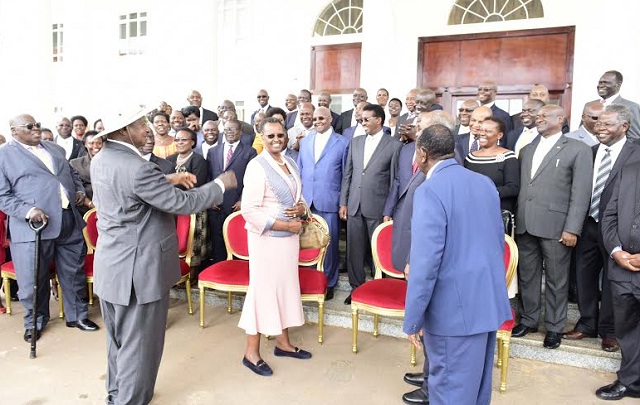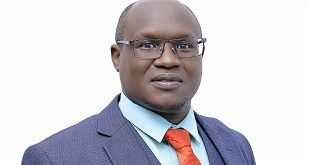COMMENT:
By Prof. George W. Kanyeihamba
The greatest disservice that the NRM government has done to Uganda is its tolerance of corruption in public affairs and its failure to curb incidents of abuse of office and embezzlement of public funds. Indeed, in some instances, it would seem that to do these wrongs may qualify people, NRM cadres and supporters, to be appointed to public office or promoted or otherwise rewarded.
The main reason for the tolerance of corruption, abuse of office and embezzlement of public funds is what that leadership has always called “correct line of politics”. This means that what the NRM leadership believes or conceives to be in its interests must prevail at the expense of everything else. Moreover, correct line of politics simply means that the leaders’ opinion or policy must be accepted and given unquestionable support. Persons who express contrary opinions may do so in private, but to do it in public or in a forum not controlled and presided over by the top leadership of the NRM is to betray the principles of the correct political line.
In some instances where persons, though very supportive of the NRM feel principled enough to differ from the correct line, they are condemned wholesale or sent to ‘Coventry’ or branded traitors who let down the NRM and are labeled an enemy. The NRM leadership seems not to have realised that the cadres it discards or ignores seem to be the ones the general public looks up to as principled leaders. It is the excommunicated cadres who are often consulted.
The failure of its leadership to tolerate opposition will in the end destroy the NRM itself
There is evidence to show that the NRM leadership has the knowledge of public officials who are corrupt, abuse public office or who embezzle public funds but the same leadership coils away from taking any effective remedial action for fear of upsetting the correct political line. There is also evidence to show that if the government showed courage and took the necessary corrective and punitive measures against the culprits, the general public would not only approve but would give it political support.
Thus, in the late 1980s, Cabinet set up a committee to fight corruption, embezzlement and incompetence in public administration. The committee received reports from the Parliamentary Public Accounts Committee which had investigated allegations of corruption, abuse of office, embezzlement of public funds and incompetence in the public service and named officers and other persons guilty or involved in those scandals. The committee took actions which were approved by Cabinet and which any reasonable employer might have taken, namely dismissing some of those who were guilty, disciplining or indicting those who had been negligent, and terminating their employment in the public interest. The exercise affected over 300 public officers and the civil service was shaken to its roots. Government officials began to be serious in their work. Corruption and embezzlement of public funds reduced drastically. However, some senior ministers and other influential persons in society started complaining that the Cabinet Committee was spoiling the politics of the NRM because some of those disciplined were NRM supporters. The President was eventually persuaded to redeploy some of the culprits or compensate them in some way. It was not long before the committee was disbanded.
In our view, giving lip service to the fight against the three evils of misrule, namely corruption, abuse of office and embezzlement of public funds is simply a disservice to the country. The NRM government can be accused of condoning corrupt ministers and officials simply because they support it. There are other examples of principled public officers who stood up against ministers’ wrong doing or failure by government officials to follow procedures or acted rightly but under the NRM rule, these are very few and far in between.

In order to covet and get the votes of the peasants and the illiterate, NRM leaders appear to shy away from appointing highly educated and trained cadres. In any event, a nation can only develop and prosper if its leaders and workers both at the national and local levels are enlightened and educated. They ought to have had training in both professional and technical fields. The acceptance and tolerance of mediocrity in Uganda’s government have led to a culture of cheating and forging of educational certificates and diplomas to meet minimum qualifications for employment. However, as President Museveni himself said on one occasion, employment, especially of the youth and the widening of the tax base are still unresolved. With regard to the latter, government efforts are often frustrated by the endemic nepotism, corruption and incompetence within government departments.
 The Independent Uganda: You get the Truth we Pay the Price
The Independent Uganda: You get the Truth we Pay the Price



All actions of this government especially the president is to buy more time to stay in power. That is their only concern. No interest whatsoever in the common or future well-being of Ugandans.